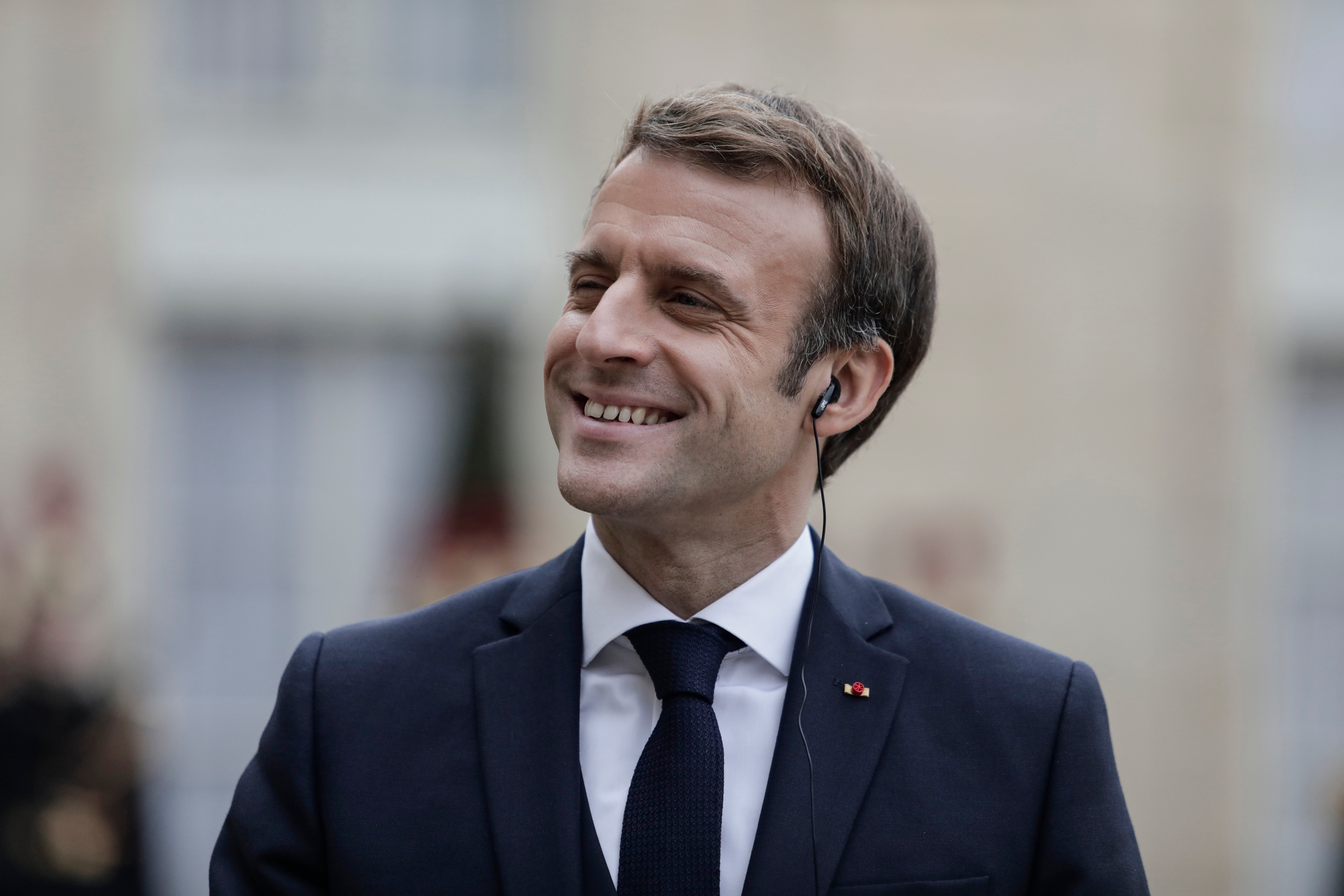Macron to unveil EU agenda ahead of French presidential race
French President Macron is planning to present the priorities for France’s upcoming presidency of the European Union

French President Macron plans to present the priorities for France's upcoming presidency of the European Union, a tenure that overlaps with the country's presidential election and could put Macron in a tricky position if he campaigns for reelection.
Macron is expected to run in April’s two-round election, and France's turn in the European Council's rotating six-month presidency starts Jan. 1. The French leader has a news conference about the EU presidency scheduled for Thursday
The press conference will be only the second one held by Macron at the Elysee presidential palace to answer a broad range of questions. The first one took place in April 2019 following the antigovernment “yellow vest” protests against social and economic injustice.
Macron, who was elected in 2017, has yet to formally declare whether he will seek a second term. Earlier this week, on a visit to central France, the 43-year-old centrist president declined to present himself as a candidate.
“Good try,” he told reporters when asked about recent election polls. “I’m first going to try to do the task which I have been given, and we still have a lot of work to do to fight the epidemic.”
France’s presidency of the EU could provide a platform for Macron's campaign but also complicate it if the race is focused primarily on domestic issues such as the French economy, security and immigration.
The pro-EU leader would be able to use the presidency to influence the decisions of the 27-nation bloc, yet the EU's complex and consensual EU decision-making process might play against him and produce few concrete actions before April’s election..
Macron promotes a vision for the EU's “strategic autonomy” that would allow the 27-nation bloc to better weather competition from China and put it on a more equal footing with the United States.
Notably, he is pushing for “a stronger and more capable European defense" that contributes to transatlantic and global security and is complementary to NATO.
France’s motto for the EU presidency is “Recovery power, belonging” - the last word meant to convey the idea of enhancing Europeans' sense of shared belonging to the bloc.
Polls on the voting intentions suggest for months Macron is the frontrunner in the race. A priority for him will be to suck support away from conservative and far-right candidates, who are polling more strongly than contenders on the left and appear in a better position to reach the run-off.
Last week, France’s main conservative party, The Republicans, chose the head of the Paris region, Valérie Pécresse, to be its candidate in the presidential race.
Known as a convinced pro-European, Pécresse in recent months hardened her positions on immigration and security. “Macron has only one obsession: to please (people). Me, it’s to do things,” she said, vowing to “break” with the president’s centrist policies.
Two far-right contenders, Marine Le Pen, the head of the National Rally who faced Macron in the 2017 runoff, and former TV pundit Eric Zemmour, are campaigning on anti-Islam, anti-migrant themes.
On the left, Paris Mayor Anne Hidalgo is the presidential candidate for the Socialist party and the Greens chose European lawmaker Yannick Jadot, a former Greenpeace activist.
The far-left leader of the Rebel France party, Jean-Luc Mélenchon, who is seeking the presidency for the third time, called on Macron to “come into the arena to debate.”
Macron "is not above democracy,” he said.
Bookmark popover
Removed from bookmarks